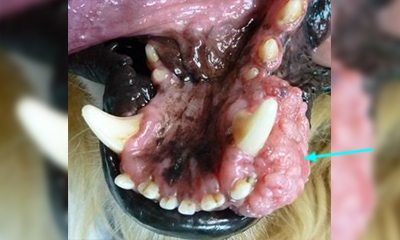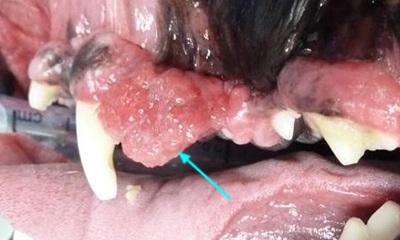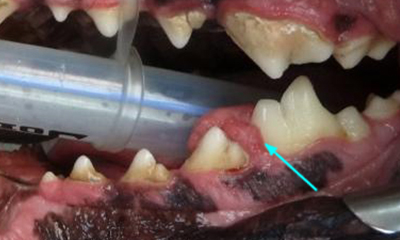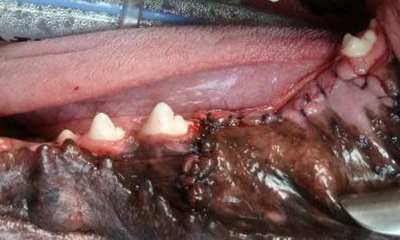Oral Tumor Diagnosis
Some oral growths (tooth infection, cyst, impacted tooth) may be mistaken for an oral tumor. We can help properly diagnose an oral tumor so that it can be promptly treated.
KEY FACTS
- Oral tumors cannot be diagnosed from their physical appearance.
- 3D Imaging, dental x-rays and biopsy must be performed to select the best treatment.
- A biopsy tissue specimen is sent to a board certified pathologist. From this examination, they will determine the cell type and make a diagnosis of a specific tumor that is present.
QUICK LOOK




LEARN MORE
Early detection and diagnosis of an oral tumor is always our goal. However, many growths grow undetected as few pets will show signs or symptoms. Some oral tumors are noted when the veterinarian performs your pet’s annual examination, while others are noted during a pet’s teeth cleaning procedure.
Oral tumors can represent a benign or malignant condition:
- Benign (not cancerous)- a mass of cells/tumor that typically lacks the ability to invade neighboring tissue and will not metastasize or spread.
- Malignant (cancerous)- a mass of cells that invade and damage nearby tissues. Cells can break away, enter the bloodstream and spread to other parts of the body.
Staging is the diagnostic testing that is performed for malignant tumors. It is used to determine if the tumor has spread to other parts of the body (lymph nodes, lungs, liver/kidneys). Common staging tests include biopsy or cytology of local lymph nodes, chest x-rays, or abdominal ultrasound.
Surgical removal is the preferred treatment for the majority of oral tumors. Based on the tumor type and imaging (3D Imaging – Cone Beam CT) findings, the removal of the tumor will be performed with a predetermined amount of adjacent normal tissue. It is likely that this oral surgery will include one or more teeth. We perform many of these procedures and will share how patients will eat, adapt and look after surgery.
Radiation or Chemotherapy has limited uses in malignant oral tumors. Sometimes these therapies can be used in conjunction with surgery or to relieve pain and slow the progression of the disease. We may refer you to a Veterinary Oncologist for further discussion on treatment options.

